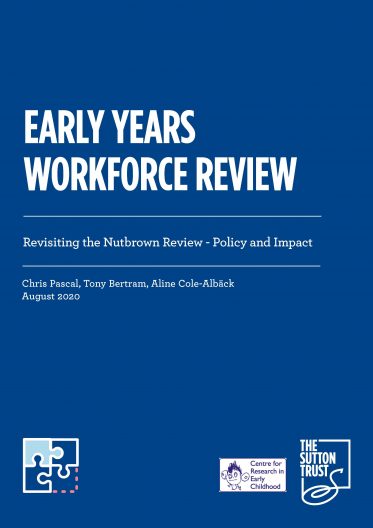Report Overview
It is now well established that skilled and well-qualified practitioners are a key element of high quality early education and care and make a proven difference to child learning and development, particularly for children from low income and at risk families.
In 2012, the Nutbrown Report (an independent government review) looked at how best to strengthen qualifications and career pathways in the early years and childcare sector. Nutbrown made 19 recommendations, with the aim to create a qualification and professional development system for all early years professionals that could deliver quality services.
At the time, the government response to the review was seen as disappointing by the sector, with only 5 of the 19 recommendations being accepted fully and actioned. In the years since, there have been a succession of other early years and childcare policy announcements and government initiatives which have impacted further on the early years workforce. This report looks at the current state of play, examining progress on Nutbrown’s recommendations since 2012, as well as building an evidence base on early years workforce policy, to help inform future priorities for the government’s early years workforce strategy as they attempt to mitigate the growing inequalities in society.
This report was written prior to the COVID-19 crisis. For an overview on the impact of the pandemic on the early years sector, see our COVID-19 impact brief.
